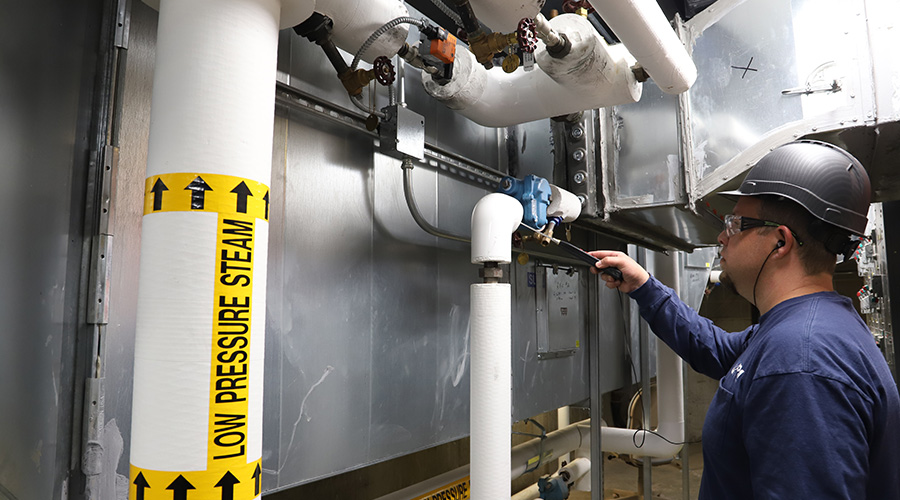SynaTek, one of the largest manufacturers of ice melt products in the U.S., has developed a deicing and anti-icing fluid based on potassium formate, a salt of BASF’s formic acid. Marketed under SynaTek’s EntryTM, the fluid provides pre- and post-treatment of commercial and residential exterior traffic surfaces. SynaTek will showcase its new product at the SIMA Snow & Ice Symposium in Montreal, Quebec, Canada, on June 20, and the BOMA International Conference & Expo, June 24 to 27, in Nashville, Tenn.
Potassium formate quickly and reliably removes thin layers of ice, and prevents new snow and ice from accumulating. At a 50 percent concentration, the freezing point is reduced to approximately minus 63 degrees Fahrenheit (minus 53 degrees Celsius.). Unlike other deicing agents, potassium formate is readily biodegradable, and does not contain chlorides that can damage ecosystems. The low Chemical Oxygen Demand (COD) minimizes oxygen depletion of surrounding soil and surface water.
“Entry is an eco-friendly solution that is safer for pets, plants, and metals, and provides rapid and reliable results,” said Nate Clemmer, CEO and Managing Partner of SynaTek. “The non-chloride-based product does not become sticky or slippery and eliminates chloride residue and granular tracking. Additionally, our collaboration with BASF and their formic acid production site in Geismar, La., allows us to offer a purely, domestically sourced product.”
With its new plant in Geismar, La., BASF is the only company in the U.S. to produce formic acid, which reduces delivery time throughout the region. BASF is the world’s leading producer of formic acid, with production plants at its sites in Geismar, Ludwigshafen, Germany, and Nanjing, China.
Formic acid is an effective solution for a wide range of applications, such as animal feed preservatives, formate salts for runway deicing, household and industrial cleaning, pharmaceutical and other chemical intermediates, and promotion of oil and gas extraction. Many beekeepers also use the organic acid to protect bees from the dangerous varroa mite.
For more information about formic acid, visit basf.com/formicacid-americas.

 Biofilm 'Life Raft' Changes C. Auris Risk
Biofilm 'Life Raft' Changes C. Auris Risk How Healthcare Restrooms Are Rethinking Water Efficiency
How Healthcare Restrooms Are Rethinking Water Efficiency Northwell Health Finds Energy Savings in Steam Systems
Northwell Health Finds Energy Savings in Steam Systems The Difference Between Cleaning, Sanitizing and Disinfecting
The Difference Between Cleaning, Sanitizing and Disinfecting Jupiter Medical Center Falls Victim to Third-Party Data Breach
Jupiter Medical Center Falls Victim to Third-Party Data Breach